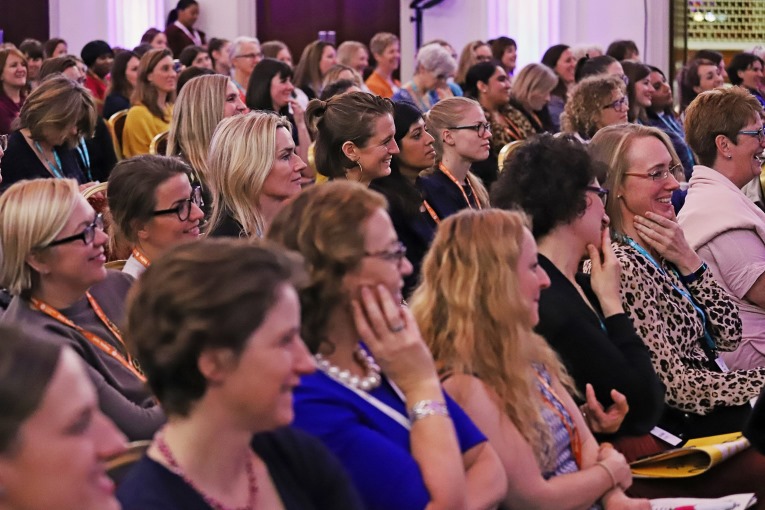How female business owners can change perceptions and get funding

Posted: Mon 2nd Mar 2020
Female entrepreneurs are considerably less likely to get funding than their male counterparts but there are lots of opportunities to get investment.
Last year's Festival of Female Entrepreneurs heard from successful founders about how they raised investment and their advice for business owners that are looking for funding.
The perception of female founders
Jenny Tooth, CEO of the UK Business Angels Association (UKBAA), is on a mission to increase the amount of angel investment going to female founders.
"I don't see enough pitches from women," Tooth said during a panel at the event. "The first thing to remember is that investors have heard a lot of men pitch. There's a huge level of confidence and bullsh**ting. As women, you tend to be more honest and straightforward, but that can sometimes sound less exciting."
Jess Hellens, founder of Wild Coworking and delegate at the event, said Tooth's talk boosted her confidence.
"Women don't lack ambition or ability, but we've always been told that we're less than men. It's the confidence and the shared knowledge we lack because nobody actually knows how an investment works until you do it," she said.
Tooth highlighted The Rose Review, which says female entrepreneurs feel they are judged to be less competent than their male peers and found less than 1% of UK venture funding goes to all-female teams. Tooth estimated that 60% of seed money is in what the UKBAA calls the "golden triangle" - London, Oxford and Cambridge - too, making it even harder for female entrepreneurs outside of those cities.
Nisha Katona founded Mowgli Street Food to help preserve her family's traditional Indian cooking. She held back from getting investment, in-spite of receiving an offer within three weeks of opening her first restaurant. When she did go to the banks for funding they weren't supportive.
"I was in my 40s when I went to banks to talk about funding," she said. "Every institution would have you believe you business idea is a mid-life crisis. My god do you need strength in belief in your idea."
Katona has since taken on private equity. Mowgli signed its eighteenth lease and has 400 staff, within four and a half years of launching. In spite of the lack of funding going to female entrepreneurs, she said there is lots of money out there for unique restaurant concepts that are backed by an owner's story.
"With that funding comes unbelievable scrutiny. You have to think about every angle and it's right that you have that. Consumers want that face behind the business. Get their feedback and build it collaboratively," she added.
How to get funding from investment angels
Angel investors back start-ups because they believe in the entrepreneurs behind them. It's risk capital and you're giving away part of our business. Tooth added that you should never give away more than 15% of your business in those early stages.
Angels tend to invest between £75,000 and £2m. However, if you're looking for £75,000 upwards you're probably going to need more than one angel to take part in the investment round. However, you approach raising this investment you're going to have to kiss a lot of frogs, said Tooth.
It is important to build a story around your business and why investment will help it grow when approaching investors. Tooth described the four steps you need to think about when putting together a pitch:
What is your growth story, where are you taking this business and where could you take it if you had my money?
What is it that's different about your business? What's new and exciting? We see a lot of companies, so we need to understand why this is different.
How have you been making money and how much do you plan to?
How much money do you need?
"You need to get the basics right before you begin to scale. You need to know the costings, so that when you go to investors they know how they're going to get their money back," Tooth said.
She recommends building a 12-slide presentation to walk people through that story, with images that are interesting and help convey the brand.
The advice of the female entrepreneurs on stage and in the crowd was to get out there and try to raise investment.
"It's not just about being equal to men, it's about empowering women. And that doesn't mean disempowering men," said Hellens. "We have to change the landscape by just going for it."
Want help raising funding? Connect with an Enterprise Nation adviser that's an expert in investment like Bee Accountancy's Nadia Hossen Mamode.
Female Founder Toolkit
Download a free, practical guide that shines a light on resources that can help build an entrepreneurial nation of female founders. This toolkit pulls together tools, tips, contacts and inspiration to support you to thrive. Take me to the guide
Get business support right to your inbox
Subscribe to our newsletter to receive business tips, learn about new funding programmes, join upcoming events, take e-learning courses, and more.
Start your business journey today
Take the first step to successfully starting and growing your business.
Join for free

